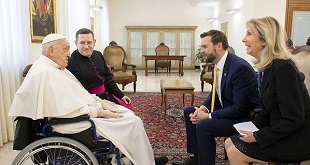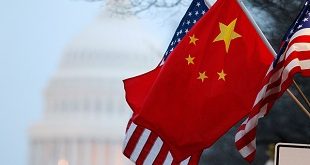
By Haggai Matsiko
President’s intervention buys three months for a solution to contested NIC payments
Emanuel Elamoit, an international relations masters student at Makerere University, is a sad man. Elamoit missed his scholarship in India because of the universitys one week staff strike that was suspended on August 27. Elamoit was supposed to get some necessary documents from the university to be submitted to the Indian University where he had scooped a fully paid scholarship in conflict studies, his dream course. Elamoit arrived in Kampala on Aug 23 from Gulu, where he works in a non-governmental organisation, only to be greeted by closed, padlocked doors and police trucks patrolling the University.
The lecturers vowed not to resume their duties until National Insurance Corporation (NIC) pays them their earned savings. Even at the duress of a gun we are not going back to work without our money, said Tanga Odoi, chairman of Makerere University Academic Staff Association (MUASA), at a press briefing amidst loud applause from staff members.

The lecturers demand Shs 16.5 billion, which they saved with the national insurer between 1996 and 2005, when NIC operated a pension scheme for the institution. However, the insurer says the deposits amount to only Shs13 billion.
This is not the first time a strike is frustrating Makerere University. There have been many strikes by both lecturers and students at the 88-year-old institution.
Alex Mugisha, a Makerere alumni, says strikes are part of the University culture. We never used to stage strikes for nothing. They were tools to right the wrongs like unjustifiable fees increments and poor policies. Strikes were reminders to the administration that hey this is our University, says Mugisha from campus. I also suffered a lot in 2006 and 2008 when I was doing my masters at the University. The lecturers laid down their tools because of poor pay and we never had classes for close to a month. He adds that these events tarnish the image of the university and questions why the government cant solve them for once and all. For God s sake this is the countrys best university.
Dr. George Lugalambi, the head of the Mass communication department at the University says that the reoccurrence of strikes at Makerere is mainly because of the nature of the institution. Makerere is a big institution and people feel that they can make a point out there by laying down their tools, he says. For instance this strike has elevated negotiations to a higher level. Unlike before when President Museveni could not intervene in staff issues, now he has.
.jpg)
This time around President Museveni, in a letter to the Makerere staff dated Aug 26, asked the lecturers to resume teaching and committed the government to take responsibility of the situation.
“In case of any problem with the deposited money, government would have to take responsibility towards the depositors and then deal with the proprietors of NIC and managers as we did in the case of green bank,†reads the president’s letter.
Staff members were defiant to suspend the strike questioning the seriousness of the president’s guarantee, but later resolved to suspend the strike for three months and wait for the auditor general to audit the funds in question as the president directed.
“Let us unanimously suspend the strike
and give little time to the auditor general and update the president as the president deals with NIC as he requested,†said Odoi.
The lecturers agreed to convene after three months to decide on whether to lay down their tools again. “Let us remove our catalyst (strike). We will use it again if we do not get our money,†said a professor from the chemistry department.
It will not be the first time a strike is suspended to be resumed again. Earlier this year staff members announced a strike only to suspend it again after Makerere’s Vice Chancellor, Prof. Venansius Baryamureeba, convinced the staff members that president Museveni would attend the 57th graduation and would address their grievances in his speech. However, in the end the president did not attend the graduation.
Secondly, top university officials, including the Vice Chancellor, were working around the clock to amend staff relations with the government that have been strained for a long time on account of lecturers being perceived as anti-NRM.
The VC was hopeful that the president would assist them financially to develop certain projects such as their Kololo land. President Museveni had previously given Shs 4.5 billion to the Faculty of Food Science and Technology after visiting the faculty on October 2, 2009. When the president failed to turn up to the graduation, the lecturer’s hopes were shuttered.
Despite having a big stake , Makerere officials have been neglected by NIC, which has triggered more questions on how the corporation has managed to neglect over 2000 staff members at the country’s most respected university.
A lecturer who preferred not to be identified told The Independent that keeping Makerere University running is not an easy task and that such strikes help put things right.
“Those who say that lecturers are striking all the time should know that strikes are a negotiating tool. You have such a big university that is not paid attention to by a government that claims to have education in its priorities. What do you expect?†asked the lecturer. “Strikes should be expected as long as there are disagreements. For instance, how else would the president have decided to pay attention to our troubles?â€
Professor Augustus Nuwagaba, a former MUASA chairman who led many lecturer’s strikes, says that the biggest problem is that the university lacks autonomy to implement certain decisions. He adds that despite being the biggest university in Uganda, Makerere has meagre funds which can not satisfy all its needs. “Lecturers are paid poorly and not in time because there are no funds and as the result they lay down their tools.â€
When Nuwagaba was chairman of MUASA the lecturers laid down their tools because they demanded an increment in payment.
Dr. Saul Nsubuga says that strikes are mainly caused by the University council which makes poor policies all the time. “The issue of strikes is mainly because of the poor policies made by the university council,†he says. “It is for instance council that made us fall into this NIC problem and now they are not solving it.â€
Nsubuga is not the first to blame the university council. In the meeting at the university hall on Aug 27, lecturer after lecturer blamed the university council for their problems. In fact one staff member took to the podium before the meeting started and requested that the council chairman Mathew Rukikaire be voted out of office.
“Members we are tired of this mess, our council has failed us and I request for a vote of no confidence in the council chairman right here and now,†said a staff member who could only be identified as Grace, amidst applause.
Dr. Odoi and other executive members of MUASA had earlier told a press briefing at the university guest house that they have started doubting whether the council chairman was working for the university or NIC as he seems to praise NIC all the time.
“We are in mourning that the council chairman can praise NIC for promising to pay arrears, in fact were beginning to think that he has conflict of interest,†he said.
However, Odoi later apologised and said that the council chairman had called him and clarified that he had no interests in NIC. Yet despite Odoi’s apology, staff members insist that the university council is the root cause of all problems and strikes.
Whether or not NIC clears the staffs’ savings remains unclear. But as the staff members deliberated on the resolution after receiving the president’s letter, it was clear that more than 80 percent of the hundreds that had gathered wanted the strike to continue. If their money is not paid, it is clear that these Makerereans are more than ready to plunge the institution into yet another strike come November.
 The Independent Uganda: You get the Truth we Pay the Price
The Independent Uganda: You get the Truth we Pay the Price



